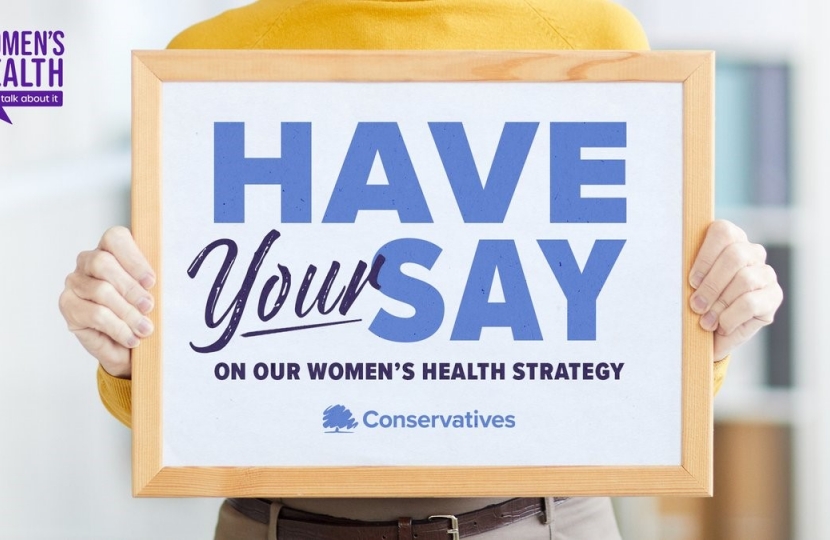
- Mario Creatura is urging women across Surrey to respond to the government’s call for evidence to help inform its landmark Women’s Health Strategy.
- The strategy will look at health issues specific to women and the different ways in which women experience health issues.
- Over 75,000 individual women, organisations, clinicians and carers have responded so far – and the call for evidence has now been extended to 13 June, allowing even more time to respond.
Mario is encouraging women across Surrey to come forward and share their experiences through the Government’s consultation to reshape the future of women’s healthcare.
The first of its kind, the Women’s Health Strategy will address women’s health in England over the course of their lifetimes from adolescence through to older age. It will focus on health issues specific to women as well as the ways in which women experience health issues.
First launched in March, there has already been an incredible response to the call for evidence, with over 75,000 women, organisations, clinicians and carers responding so far.
However, responses from South East make up just 21 per cent of the total responses so far – meaning women across Surrey may not be properly represented in the new strategy.
To enable as many women as possible to have their say and capture a variety of views on access to services, experiences and health outcomes, the call for evidence will be now extended by 2 weeks, to close on 13 June.
Commenting, Mario Creatura said:
“Every one of us should have confidence in the health and care we receive – but for too long, women have been experiencing a system that is not designed to meet their needs.
“As we look towards our recovery and building our NHS back better, we must seize this moment to deliver a system that truly delivers for women, and we want them to have their say in shaping the future of women’s healthcare.
“I would encourage women across Surrey to come forward and share their experiences, so together we can deliver fairer, more equal and better healthcare for everyone in this country”.
Commenting, Minister for Women’s Health Nadine Dorries said:
“For generations, women have been living in a health and care system primarily designed by men, for men.
“The number of responses to date has been incredible and I thank everyone who has shared their experiences – these interim findings clearly highlight the need for decisive action.
“I now urge every woman in Surrey, if they have not yet, to come forward and respond to the call for evidence. It is only by hearing the experiences and priorities of women from all walks of life that we can truly develop a strategy that works for all women.”
- The Women’s Health Strategy Call for Evidence can accessed here.
- The 6 core themes included in the call for evidence are:
- Placing women’s voices at the centre of their health and care – how the health and care system engages with and listens to women at the individual level as well as at the system level.
- Improving the quality and accessibility of information and education on women’s health – women having access to high-quality information when they need to make a decision, increasing health literacy, as well as increasing awareness and understanding of women’s health conditions among clinicians.
- Ensuring the health and care system understands and is responsive to women’s health and care needs across the life course – supporting women to maximise their health across their lives, and ensuring services are designed to maximise benefits for women.
- Maximising women’s health in the workplace – deepening our understanding of how women’s health issues can affect their workforce participation and outcomes, both with regards to female-specific issues such as the menopause, but also conditions that are more prevalent in women such as musculoskeletal conditions, depression or anxiety.
- Ensuring that research, evidence and data support improvements in women’s health – inclusion of women and women’s health in research and data collection and how that information is used, and driving participation in clinical trials to support improvements in women’s health.
- Understanding and responding to the impacts of COVID-19 on women’s health – supporting women through the unique challenges they’ve faced during the pandemic (DHSC, Consultation, 8 March 2021, link; DHSC, Press Release, 1 May 2021, link).


